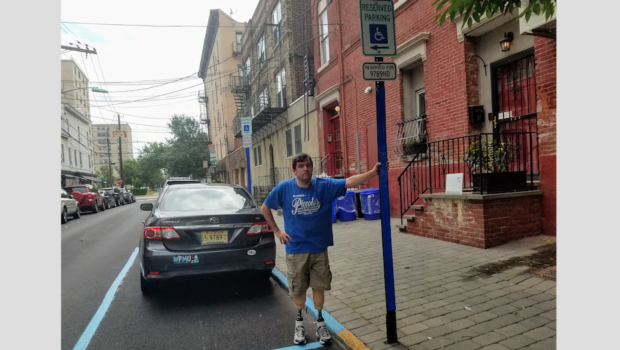
NO FEET? NO PARKING: My Year-Long Struggle to Get a Disabled Parking Space in Hoboken
by Jack Silbert
(ABOVE: photo by Irwin Chusid)
I’m a double-amputee, longtime Hoboken resident and I applied for a reserved disabled parking space near my home. Seemed like a no-brainer to this no-footer. Turned out to be anything but.
On November 15, 2016, both my legs were amputated below the knee. With the help of so many people, I’ve fought to reclaim as much of my regular life as possible. This included walking on prosthetic legs, climbing the stairs to my 4th-floor apartment, and by June 2018, learning to drive with hand controls.
I also researched how to obtain a disabled parking space in Hoboken. There’s a 4-page badly photocopied application online, which indicated I’d need to submit: a disabled ID card, disabled driver’s license, disabled license plates and registration, and a doctor’s statement. You could not already have access to a garage or other space, you needed to be transporting yourself or your child, and you had to—this part was right in my wheelhouse—“have lost the use of (1) or more lower limbs as consequence of paralysis, amputation or other PERMANANT [sic] disability which severely limits ambulation.”
I gathered all the necessary documents and in late June, 2018, submitted my application. Gina Dedio of the City Hall parking department was super nice and clearly explained the process to me: The application would go to the Subcommittee on Persons With Disabilities, and upon being approved would proceed to City Council for two “readings” (basically, being on the agenda at two meetings). Gina said the Council only meets monthly during the summer, and we might not make the upcoming July one. Ah well, if I had to wait till September for a space, so be it. One thing I’ve definitely learned is that being disabled requires a lot of patience.
A month later, I received a letter from the subcommittee. I had been denied—what?!—and needed to submit more medical information. I was rather surprised and angered, though I readily admit my submitted medical document, from my colorectal surgeon’s office, was on the short side. Still, it was to the point: An abdominal infection led to the amputation of both lower legs. I emailed back that I had many, many doctors—and listed them—and said I was happy to provide whatever information they needed, from whichever doctors they wished. I also attached a “stump selfie” to reinforce the fact that this is a permanent, severe disability.
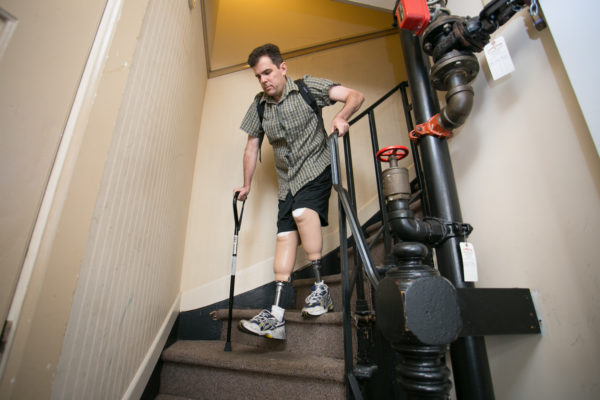
photo courtesy of Kessler Institute for Rehabilitation
Another letter arrived; I was asked to meet with the three-person subcommittee in person at City Hall. I welcomed the opportunity for them to actually see me, and hear what I’m dealing with. The meeting was friendly enough, and there was no mention of a need for more medical documentation. Only one portion of the discussion bothered me, when one of the subcommittee members wondered what would happen if I had a seizure behind the wheel. I was offended and confused by this question, and explained that A) there was absolutely no neurological component to my disability, B) my competency to drive had been tested prior to my hand-control lessons, and C) I’d been approved by the state of New Jersey Motor Vehicle Commission. And anyway, what did that have to do with getting a parking space?! Still, I left the meeting feeling confident that the space would now be approved.
Two months passed with no word. I emailed Gina and asked if there was anything I could do, such as appearing at a City Council meeting. It was early November and I was getting nervous about winter approaching, as inclement weather makes it especially difficult to navigate sidewalks on prosthetics. The less distance I needed to walk from my car, the better. But I received a reply stating that I had still not qualified for a spot. “The committee failed to see your need for the restricted parking zone based on the information provided.” I was dumbfounded. I was furious.
Oh, the note also said that a general-use disabled space would be installed at or near my address by the end of December. Now, general spaces are certainly important to provide disabled individuals with equal access to a town’s shops, restaurants, and services. Other New Jersey municipalities do a much, much better job than Hoboken in this area. For example, Summit has 35 such general spaces, while Hoboken has… I think I’ve seen one or two?
Although a general space would often be helpful to me, there was clearly no guarantee the space would be open if I was coming home late, or returning from a long trip, or if it was raining, or snowing, etc. etc. The times when I would most need a space near my home.
A friend who works for the city suggested I reach out to the newly created Office of Constituent Affairs. On the phone, the department chief seemed surprised by my situation, promised she’d look into it, and sounded pretty encouraging. I had a new hope.
But the Force was not with me. Thanksgiving passed, as did New Year’s, with no update. Full of resolve and resolutions, I reached out again to the chief of Constituent Affairs. Her reply stated that “Unfortunately, I nor the Mayor have the capacity to intervene into the delegation of these spots.” She referred me, for any further clarification, to Gina Dedio. Which is where I started in the first place, six months earlier.
I had that “incapacity to intervene” concept reconfirmed by former Maxwell’s co-owner Todd Abramson. Late in 2018, Todd had interviewed Governor Phil Murphy on his WFMU radio show. Todd — one of many, many friends and neighbors sympathetic to my cause — later reached out to the governor’s office on my behalf. Murphy’s office actually called the Hoboken mayor’s office… yet were told the very same thing: The subcommittee does not report to the mayor. What kind of clandestine star chamber was I dealing with here? And how many limbs did I need to lose to get a freaking parking space?
Running out of branches of local government, I turned to our City Council, specifically my 3rd Ward Councilperson Michael Russo and Councilperson-At-Large Emily Jabbour. These two had the magic touch. By late February 2019, the subcommittee was requesting updated medical information from me (since I’d applied, you know, in the previous calendar year). Taking no chances, I turned in notes from four different doctors.
A week later, a general disabled space was installed in front of my building (two months later than promised) as my application finally began to move through the system. As I waited for the next steps, my worries about a general space were proven again and again. On at least six separate occasions, I drove home to find some other car with a disabled hangtag in the space. (Turns out there are an awful lot of hangtags in the area.) I’d end up driving around and around town looking for a space—you may recall many streets being plastered with those red-and-white “no parking” signs earlier this year—getting farther and farther away from my apartment. This was not ideal for a double amputee.
On May 15, 2019, my application for a reserved disabled space finally went before the City Council. I attended the meeting, just to make sure. But it had to survive two “readings,” so it was not until June 5 that my application was officially approved by the City of Hoboken. Yay! And it was only an additional month and a half—July 2, more than a year since I’d applied—until I actually got the space: a small sign added to the existing space indicating it was reserved for my specific license plate.
So, I’m happy now. The ability to drive restored so much independence to my life, it’s hard to explain. And the confidence that a parking space is waiting for me is such a relief. It was one less thing to worry about. Yet this is by no means over, because as the process dragged on, it became clear that this was no longer just about me. The reserved-space application process absolutely needs to be revamped and modernized, the subcommittee needs to be made transparent and fully accountable, the city needs many more general disabled spaces, and overall accessibility and awareness in Hoboken—and compliance with the Americans With Disabilities Act—has to become a much bigger priority. I definitely never set out to be a disability activist—I just want to live my normal life—but we’re all in this together, the underrepresented always need our support, and I’ll speak up and pitch in whenever there’s a need.
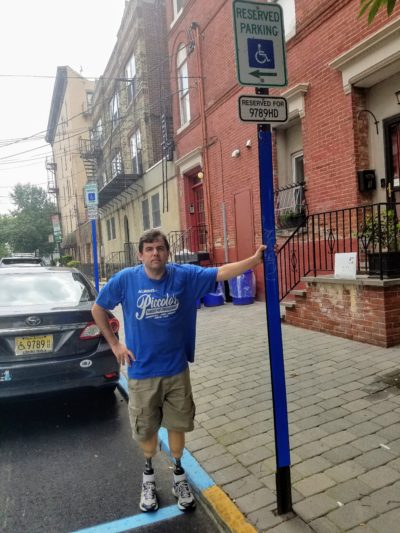
photo by Irwin Chusid
***

 Previous Article
Previous Article Next Article
Next Article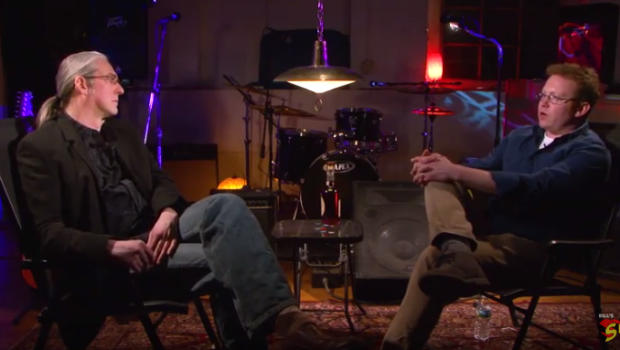 BILL’S SPACE SHOW: Sunshine, Lollipops, Rainbows… and Gerry Rosenthal
BILL’S SPACE SHOW: Sunshine, Lollipops, Rainbows… and Gerry Rosenthal 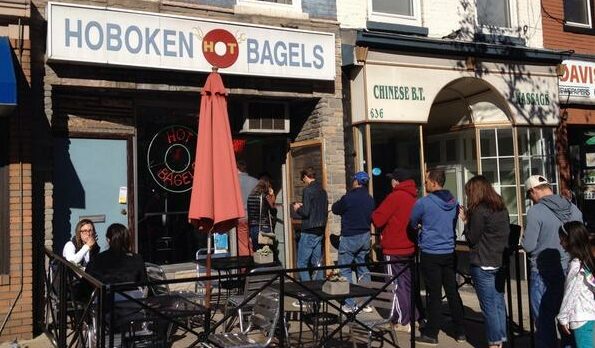 IT MUST BE THE BAGELS: New Yorkers Keep Lining Up to Move to New Jersey
IT MUST BE THE BAGELS: New Yorkers Keep Lining Up to Move to New Jersey 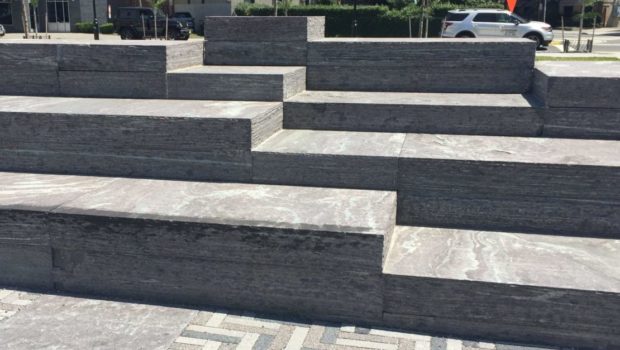 ROCK ON THE ROCKS: Live Music Comes to Hoboken’s Southwest Park — TUESDAY NIGHTS, STARTING JUNE 12th
ROCK ON THE ROCKS: Live Music Comes to Hoboken’s Southwest Park — TUESDAY NIGHTS, STARTING JUNE 12th  DOUBLE-DOWN: Substantial Fiscal Woes Come to Light in Hoboken
DOUBLE-DOWN: Substantial Fiscal Woes Come to Light in Hoboken 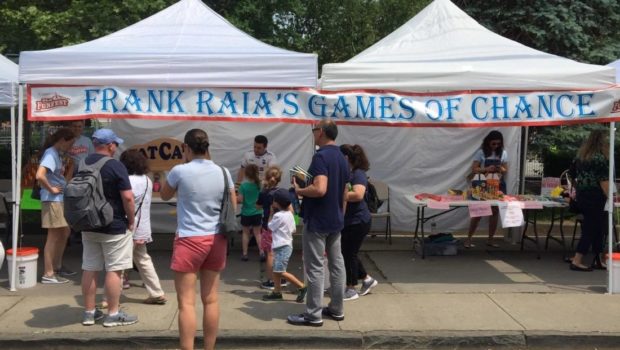 FLUSHING PUPIE: Wading Through New Jersey’s Political Sewer, With The Plunger In Our Hands | EDITORIAL
FLUSHING PUPIE: Wading Through New Jersey’s Political Sewer, With The Plunger In Our Hands | EDITORIAL  RAIN FALLS, HOBOKEN FLOODS: Mayor Defends Flood Mitigation Efforts in Wake of Fay; Labels Sewer Replacement ‘Impractical’
RAIN FALLS, HOBOKEN FLOODS: Mayor Defends Flood Mitigation Efforts in Wake of Fay; Labels Sewer Replacement ‘Impractical’ 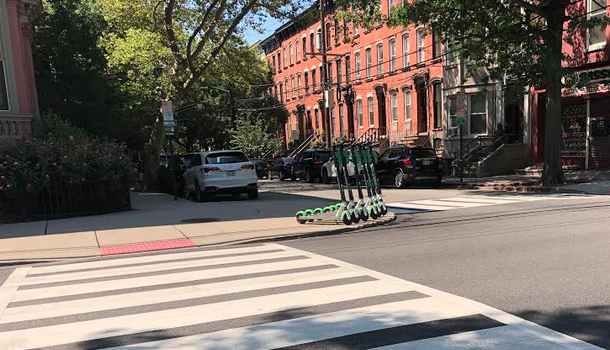 WHO WANTS TO ROLL?: Hoboken Initiates Outreach to Scooter and Micromobility Companies
WHO WANTS TO ROLL?: Hoboken Initiates Outreach to Scooter and Micromobility Companies  Who’s On First?
Who’s On First?